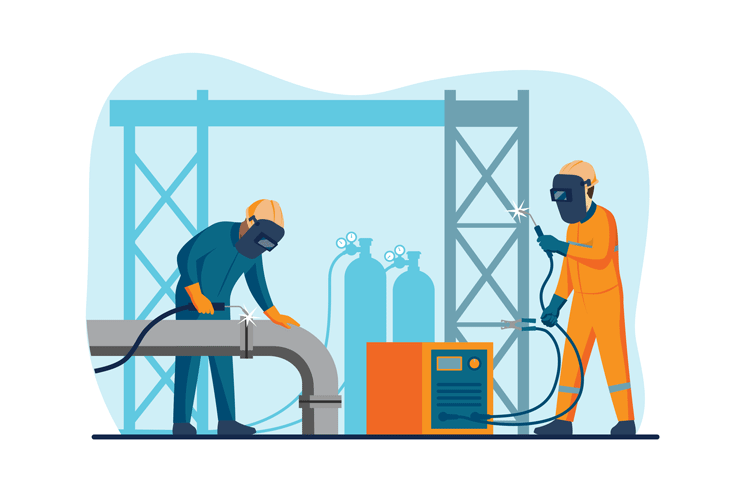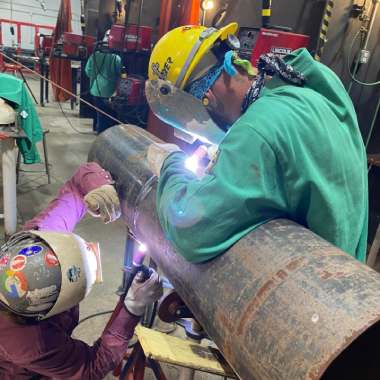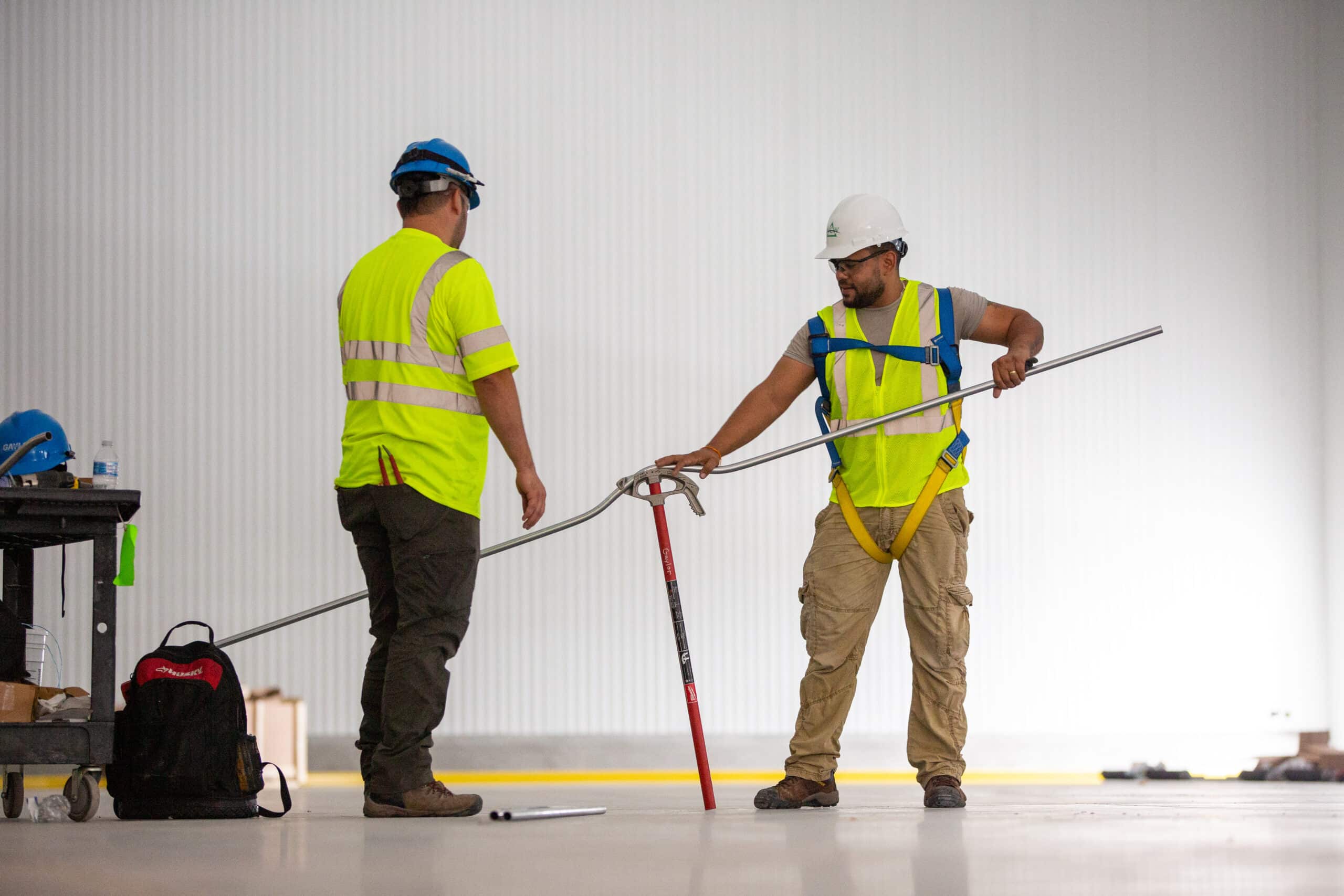
Social distancing and hygiene haven’t impacted the demand for skilled trades. An apprenticeship program in Charlotte, NC will typically take 4 years to complete, after which you will be eligible to apply for journeyman certification 1. Unlike some other trades, there is currently a high demand for pipefitters in Charlotte, NC 2. The U.S. Bureau of Labor Statistics projects a 6% rise in employment for plumbers, pipefitters, and steamfitters nationwide from 2023 to 2033 3, indicating a growing career field. The Charlotte pipefitter job market is regimented, with hourly wages ranging from $22 to $36 2. Find current pipefitter job openings in Charlotte available on Gild | [Top 10 Cutting Edge Innovations in Pipe Bending Technology in 2025]
Understanding the Pipefitter Role

Before diving into the specifics of becoming a pipefitter in Charlotte, NC, it's crucial to understand what the role entails. Pipefitters are specialized workers who install, assemble, alter, and repair piping systems that carry water, steam, air, or other liquids or gases2. These systems are critical in various settings:
- Industrial plants
- Commercial buildings
- Residential homes
- Energy manufacturing facilities
- Construction projects
A pipefitter's work is both physically demanding and technically challenging, requiring:
- Strength and physical stamina
- Precision manual dexterity
- Strong problem-solving skills
- Mathematical ability for measurement calculations
- Comprehension of technical blueprints
Pipefitter Certification Requirements in Charlotte, NC
In Charlotte, NC, the pipefitting profession follows a structured training and certification pathway. Certification typically comes through completion of a registered apprenticeship program rather than a standalone licensing process.
The pathway includes:
- Pre-apprenticeship training like the introductory 40-hour program at Cape Fear Community College1
- Four-year apprenticeship program combining classroom instruction (732 hours) with on-the-job training1
- Receipt of an Apprenticeship NC journeyman card and certificate upon completion1
While not a formal state license, the journeyman certification is essential for professional recognition in the field.
Pipefitting Apprenticeship Options and How to Apply

For those committed to the hands-on training that career in pipefitting demands, several pathways exist in Charlotte, NC. The typical approach is a combination of instruction and practical experience through apprenticeships.
Apprenticeship Program Requirements
The apprenticeship model follows a structured timeline and format:
| Level |
Classroom Hours |
Duration |
| 1 |
183 |
12 months |
| 2 |
183 |
12 months |
| 3 |
183 |
12 months |
| 4 |
183 |
12 months |
| Total |
732 |
4 years |
These programs follow standardized NCCER curriculum ensuring industry-relevant training throughout the process1.
Finding an Apprenticeship in Charlotte
Several organizations facilitate this training:
- Cape Fear Community College - Offers a formal Plumbing and Pipefitting Apprenticeship program1
- UA Local 421 - Provides comprehensive training programs for pipefitters with over 1,400 members in the region2
- Various employers - Many Charlotte companies directly hire apprentices offering on-the-job training combined with classroom instruction
To explore current opportunities, you can search multiple job boards:
These platforms will help you discover the best entry point into your career journey based on location, schedule, and specialization.
Steps to Becoming a Certified Pipefitter in Charlotte, NC
Follow these clear steps to start your career in this growing industry:
1. Meet Basic Training Program Requirements
Before enrolling in any program, ensure you meet these minimum qualifications:
- Be at least 18 years old
- Hold a high school diploma or GED equivalent
- Possess basic math and reading comprehension skills
- Be physically capable of performing the work required
2. Complete Introductory Training (Optional but Recommended)
Cape Fear Community College offers a "Plumber & Pipefitter Academy" - a one-week, 40-hour program introducing fundamental concepts1. This provides valuable foundational knowledge before starting an apprenticeship.
3. Apply for Apprenticeship Training
Begin the core of your training:
- Apply to registered programs through Apprenticeship NC
- Acceptance into 4-year program combining 732 classroom hours with paid on-the-job training1
- Enroll in program following NCCER curriculum standards
- During your apprenticeship, work under the supervision of experienced professionals while gaining practical skills.
4. Earn Journeyman Certification
Upon completing your apprenticeship:
- Receive official Apprenticeship NC journeyman card
- Obtain certificate documenting completion of training program1
- Qualify to work independently in the trade with improved earning potential
5. Consider Specialization or Leadership Opportunities
Advanced professionals may pursue:
- Specialization in specific types of piping systems (e.g. HVAC, industrial process piping)
- Leadership roles as foremen or supervisors
- Additional training in welding techniques (e.g. Stick and TIG welders)
Start your pipefitting apprenticeship today - find current openings in Charlotte here on Gild.
Pipefitting Career Advancement and Industry Trends in Charlotte

The pipefitting profession in Charlotte, NC is experiencing a period of growth and transformation. Several key trends are shaping the industry:
Strong Demand for Pipefitters
Charlotte maintains a robust job market for pipefitters:
- Indeed lists 62 pipefitter job openings 2
- ZipRecruiter reports even more opportunities with 104 listings available4
- Wages ranging from $22 to $55 hourly, depending on experience and employer245
Industry Growth Drivers
The construction sector remains a leading growth area for pipefitters, with particular demand in:
- Energy and power generation projects
- Manufacturing facility development
- Commercial construction boom
Emerging Technician Specializations
Advancements in technology are creating new specializations within the field:
- Digital blueprinting systems requiring increased computer literacy
- Advanced welding techniques for specialized piping applications
- Green plumbing technologies supporting sustainable building practices
Work Environment and Schedule
Pipefitters typically work full-time schedules, with potential for overtime pay. Projects may require:
- Working in confined spaces
- Exposure to various weather conditions
- Frequent bending, kneeling, and heavy lifting
The physically demanding nature of the work suggests considering bodily preservation methods that could help you prevent injuries and prolong your career.
Key Pipefitting Facts for Charlotte, NC in 2025
| Attribute |
Data Point |
| National job growth projection |
6% from 2023-20333 |
| Charlotte job listings (Indeed) |
62 openings2 |
| Charlotte job listings (ZipRecruiter) |
104 openings4 |
| Starting hourly wage range |
$22-$55245 |
| Apprenticeship duration |
4 years1 |
| Classroom instruction hours |
732 total hours1 |
| Physical qualification requirement |
Required1 |
This quick reference table summarizes the most important information for those considering a pipefitting career in Charlotte.
What’s Next?
Pursuing a pipefitting career in Charlotte, NC in 2025 opens opportunities in a growing industry with competitive wages. The demand for skilled tradespeople continues escalating due to industrial development and construction projects that rely on qualified professionals.
Pipefitting offers strong job security, with professionals enjoying:
- Competitive hourly pay
- Overtime opportunities
- Industry-relevant benefits
- Progression pathways into leadership roles
The structured training approach - beginning with introductory skills followed by a registered apprenticeship - creates a clear pathway to career success. With multiple programs and job opportunities available in Charlotte, it's an ideal time to consider this trade.
Ready to take your first step into this fast-growing career path?
Start your journey by finding pipefitter apprenticeships and entry-level positions in Charlotte available through Gild today!
Sources

